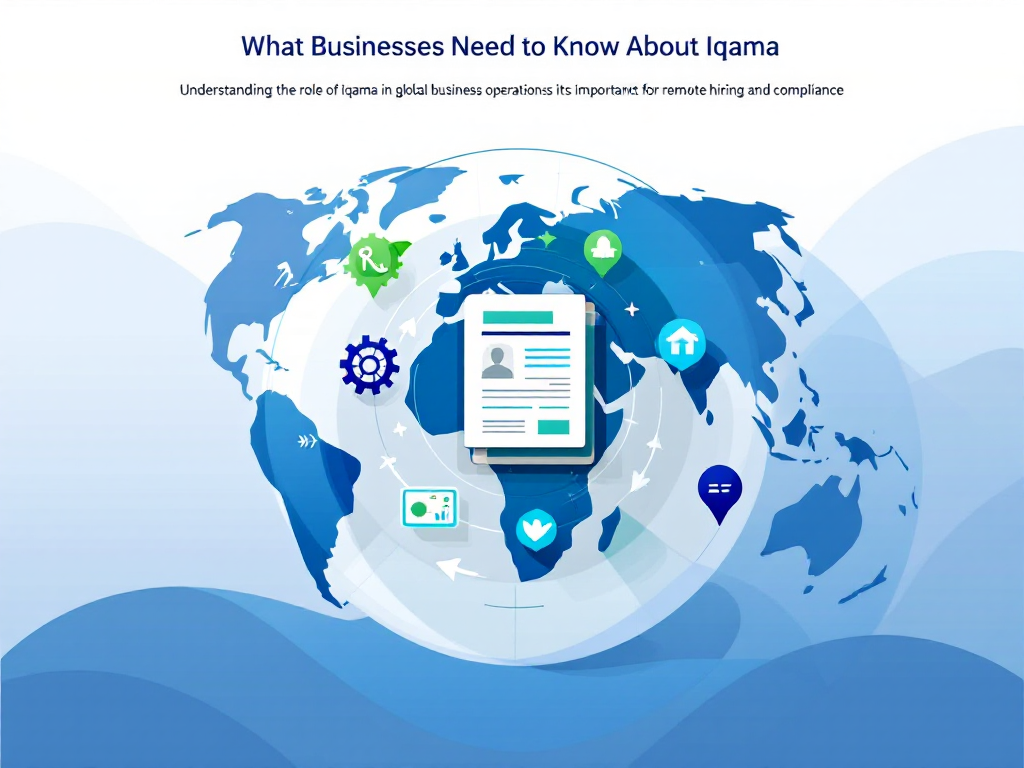Introduction: Navigating Iqama in Global Operations
Imagine a burgeoning tech startup that has just set its sights on expanding into the Middle East, particularly Saudi Arabia. This ambitious move promises access to a burgeoning market and a wealth of opportunities. However, as the startup begins its journey, it quickly encounters the complexities of managing an international team, particularly when it comes to navigating the intricacies of the Iqama system. The Iqama, a residency permit for expatriates working in Saudi Arabia, becomes a pivotal aspect of their operational strategy. Enter PayInOne, a platform designed to streamline global operations and ease the complexities of managing such international paperwork without making it feel like a hard sell.
Understanding Iqama: Context and Relevance
The term Iqama refers to the residency permit required for expatriates working and living in Saudi Arabia. It serves as a critical component for businesses operating in the region, ensuring that they comply with local labor laws and regulations. In recent years, Saudi Arabia has undergone significant changes in its labor laws, aimed at enhancing workforce localization and economic diversification. These changes have a direct impact on how businesses manage their global hiring and compliance strategies.
For businesses with global or distributed teams, understanding and managing Iqama is essential. It affects everything from hiring practices to payroll management and compliance. With the surge in remote work and the expansion of companies into new markets, the ability to effectively navigate Iqama requirements has become more crucial than ever.
Challenges and Opportunities with Iqama
Managing Iqama comes with its own set of challenges and opportunities. One common challenge is navigating the compliance and legal complexities associated with obtaining and renewing Iqama permits. Businesses must ensure that all documentation is accurate and up-to-date to avoid penalties and disruptions. Additionally, language barriers and unfamiliarity with the local legal landscape can complicate matters further.
However, these challenges also present opportunities. By mastering Iqama management, companies can streamline their operations and gain access to a broader talent pool. Saudi Arabia’s Vision 2030 initiative aims to diversify the economy, and businesses that align with these goals can benefit from government incentives and support.
Different sectors experience the impact of Iqama requirements in various ways. For instance, the healthcare sector might face specific challenges in recruiting specialized international talent, while the tech industry could leverage the opportunity to bring in skilled expatriates to drive innovation.
Expert Insights and Best Practices
What the Experts Say
“Effective management of Iqama is not just about compliance; it’s about strategic alignment with Saudi Arabia’s economic goals. Businesses that approach Iqama proactively can turn it into a competitive advantage.” — Industry Leader, Global HR Consultancy
Pitfalls to Avoid
- Neglecting Documentation: Ensure all Iqama-related documents are meticulously maintained to avoid compliance issues.
- Ignoring Legal Updates: Stay informed about changes in Saudi labor laws to adapt your strategies accordingly.
- Underestimating Cultural Nuances: Respect local customs and cultural practices to facilitate smoother operations.
To manage Iqama effectively, businesses can implement practical tips such as workflow automation, using compliance checklists, and leveraging technology to streamline processes. PayInOne, for instance, offers tools that support these best practices, ensuring that businesses remain compliant while reducing administrative burdens.
Real-World Anecdotes: Success Stories
Consider the case of a multinational corporation that faced significant challenges in managing Iqama for its diverse workforce in Saudi Arabia. The company’s HR department was overwhelmed with paperwork and compliance issues, leading to costly delays in onboarding new employees. By partnering with PayInOne, they were able to automate much of the Iqama management process, resulting in a 30% reduction in administrative costs and a significant improvement in compliance rates.
This success story highlights the tangible benefits of leveraging technology and expertise in navigating Iqama challenges. The company not only improved its operational efficiency but also enhanced its reputation as an employer of choice in the region.

Looking Ahead: The Future of Iqama
As global business dynamics continue to evolve, so too will the landscape of Iqama management. Emerging technologies such as blockchain and e-wallets are poised to revolutionize how businesses handle cross-border transactions and compliance. These innovations could simplify Iqama processes and enhance transparency in global operations.
To remain competitive, businesses must stay abreast of upcoming regulations and tech trends that could impact Iqama management. By adopting a proactive approach, companies can future-proof their strategies and maintain an edge in the ever-changing global market.
Conclusion and Call to Action
In summary, understanding and managing Iqama is a vital aspect of operating in Saudi Arabia. It involves navigating complex legal requirements and cultural nuances while seizing opportunities for growth and innovation. As businesses expand globally, mastering Iqama management becomes a strategic imperative.
We encourage you to share your experiences and insights on Iqama management. For those looking to simplify their global operations and tackle Iqama challenges head-on, consider exploring how PayInOne can assist. Ready to take the next step? Discover more by visiting PayInOne and see how we can help you streamline your international operations.
